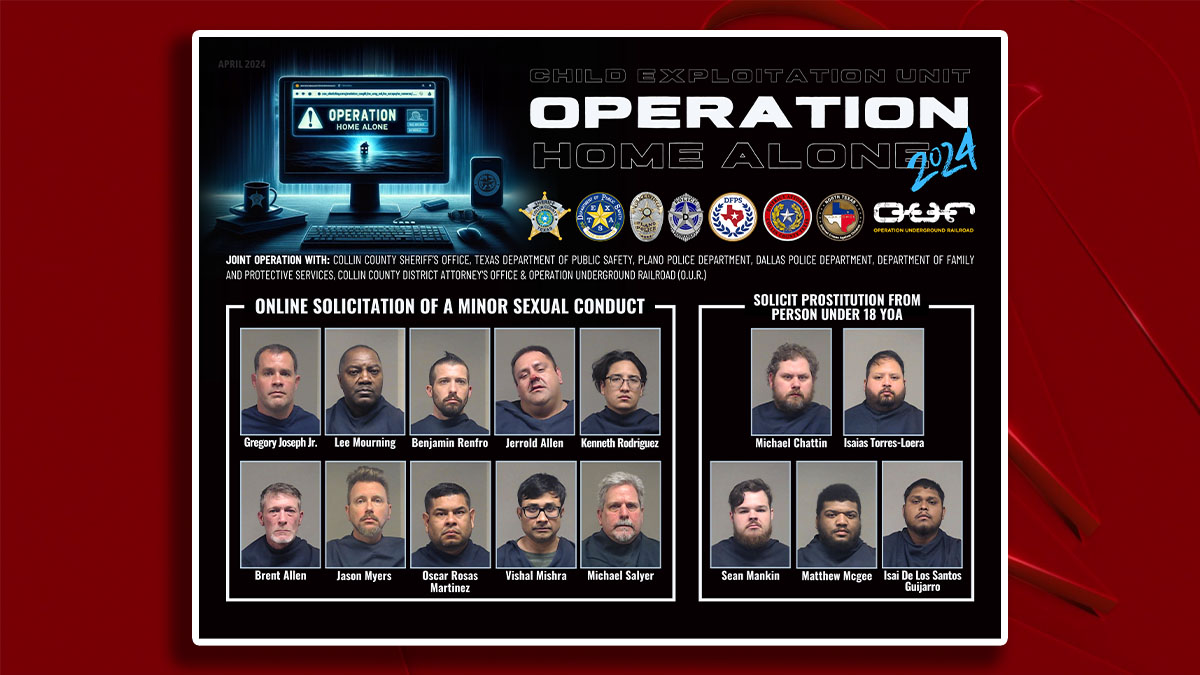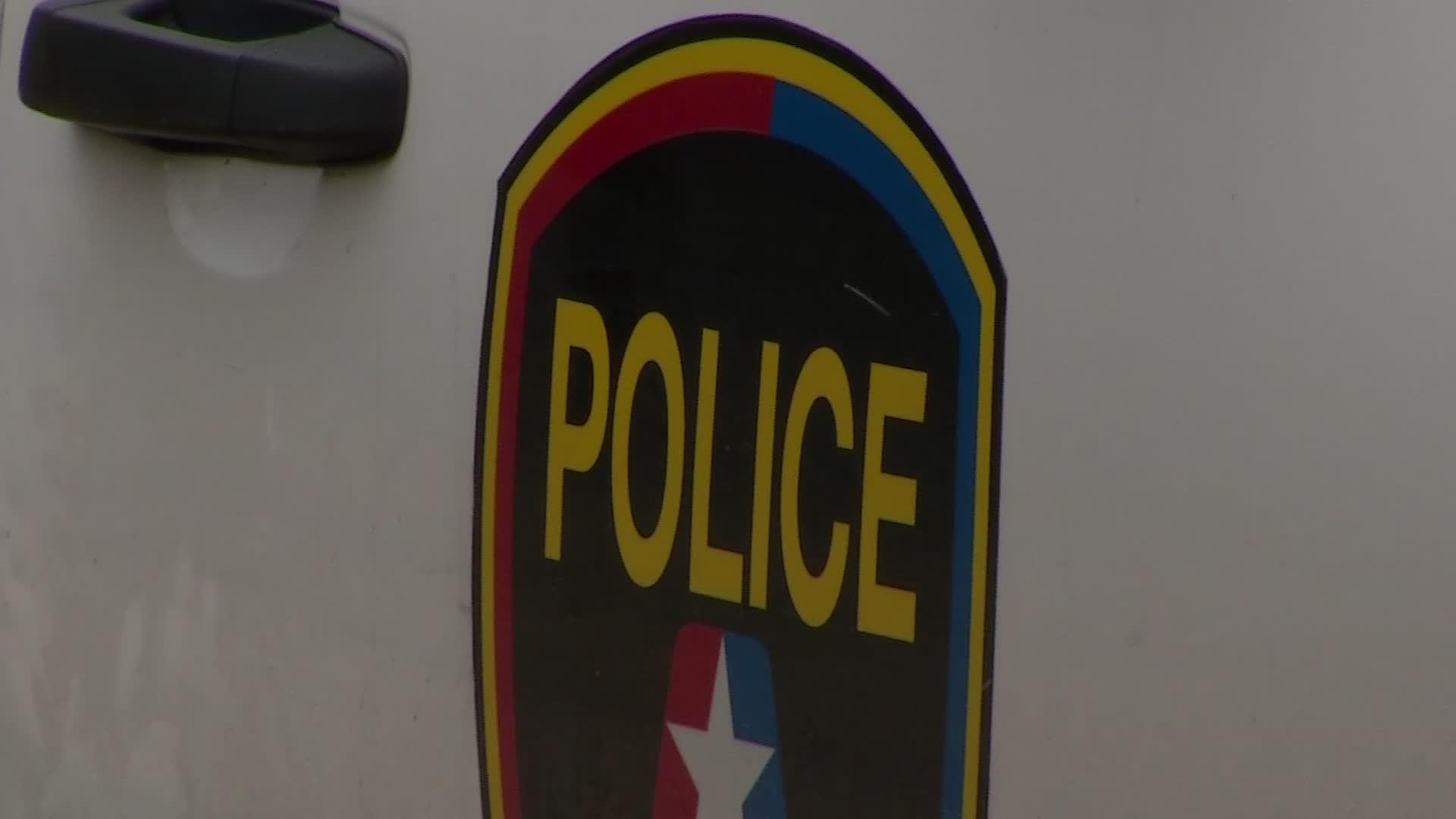A coalition of plastic bag manufacturers and recyclers filed a lawsuit against the city of Dallas Friday saying an ordinance regulating single-use grocery bags is illegal and should be invalidated.
In 2014 the city council passed a resolution that adds a $.05 cent fee for each single-use plastic bag used by shoppers.
In the lawsuit, which can be seen at the bottom of this page, the coalition said the ordinance should be discontinued because it violates the Texas Solid Waste Disposal Act, which prohibits imposing a fee on the sale of a container.
At the request of State Rep. Dan Flynn (R-Van), Gov. Greg Abbott, who at the time was Texas Attorney General, issued an opinion on the fee in August 2014 that said the ban or restriction on single-use bags was illegal, citing the same act.
Flynn requested the attorney general's opinion after nine cities enacted ordinances banning or restricting single-use bags.
Another North Texas legislator, State Rep. Drew Springer (R-Gainesville) filed a bill in 2013 to make all bag bans invalid over the concern of a nanny-state agenda and fears people wouldn't wash reusable bags.
Springer is back for the current legislative session and has teamed up with freshman State Rep. Matt Rinaldi (R-Irving) to file HB 1939. That bill, if passed, would allow any business that sells an item to provide the customer with a bag or a container made from any material and would block local ordinances that would ban or impose a fee on such bags. On March 16, the bill was referred to Urban Affairs. If passed, it would go into effect Sept. 1.
Although Gov. Abbott has said derisively that such ordinances show that Texas is "being Californianized," the Austin American-Statesman reported that environment-minded ordinances seem to be working in both the state capitol and more than a dozen other cities statewide, including the following:
- Austin — bag ban effective March 1, 2013
- Brownsville — bags restricted; fee of $1 per transaction effective January 2011
- Dallas — bags restricted; fee of $.05 per bag
- Fort Stockton — bag ban effective September 2011
- Freer — bag ban effective June 2013
- Kermit — plastic bag ban effective Oct. 1, 2013; paper bags restricted with $.10 fee per bag
- Laguna Vista — bag ban effective September 2012
- Laredo — bag ban effective Jan. 10, 2015
- Port Aransas — bag ban effective Jan. 1, 2016
- South Padre Island — bag ban effective in 2012
- Sunset Valley — bag ban effective Sept. 2013
Other proposals have been discussed in Corpus Christi, El Paso, Houston, Issaquah, Midland and Odessa, but none have been approved.
Supporting the ban or restrictions, H-E-B spokeswoman Leslie Sweet said that less than 1 percent of customers buy emergency bags when checking out at their Austin-area grocery stores.
Darren Hodges, a City Council member in the West Texas city of Fort Stockton, said the bag ban has vastly reduced the "millions of plastic eyesores" caught on cactus, mesquite and barbed-wire fences.
In California, Gov. Jerry Brown signed the nation's first statewide ban on single-use plastic bags in 2014.
Mark Daniels, Senior Vice President of Sustainability with Hilex Poly, a plastic bag maker, had a different opinion on the bans and restrictions saying, "Bag bans, taxes or fees do not have a meaningful impact on reducing litter or waste, and, in the state of Texas, the law is clear that a city cannot ban or impose a fee on plastic bags. Dallas is in direct violation of Texas law."
Local
The latest news from around North Texas.
Hilex Poly (Novolex) is one of the four companies in the coalition, along with Superbag Operating, Ltd., Interplast Group, Ltd. and Advance Polybag, Inc., lobbying to have Dallas' ordinance removed
In addition to questioning the legality of the ordinance, the suit questions whether the "environmental fee" imposed is an illegal tax and said the ordinance also violates both state and federal constitutions by compelling speech through signage inside stores. Lastly, the group said the ordinance "violates federal regulations by imposing the bag tax on items purchased with food stamps."
“The plastic retail bag manufacturing and recycling industries support thousands of Texans with high-paying, quality jobs they need to support their families. For the sake of our workers, the hardworking residents of Dallas, and Texas’ overall economy, to which we contribute millions every year, we are eager to resolve this matter once and for all,” said Daniels.
The city of Dallas issued the following response to the single-use bag ordinance lawsuit:
“We are disappointed that four plastic bag manufacturers have filed a lawsuit seeking to invalidate the City’s carryout bag ordinance despite the manufacturers’ explicit admission in their lawsuit that “the City’s goals [in adopting the ordinance] are laudable.
The filing of this lawsuit directly contradicts the vigorous support for a fee-based option shown by the lead plaintiff, Hilex Poly Co., during the City’s consideration of the ordinance. The City will continue to act in the best interest of the health, safety, and welfare of its residents.”
Dallas City Councilman Dwaine Caraway, who led the charge to get the ordinance passed, told NBC 5 they plan to fight the lawsuit as hard as they can and that, "we can't be a green city if we are going to lay down to this."
"They just want to make money. And if it's about them making money, while they make money, we want a clean environment and a clean city," Caraway said.
More information:
DV.load("//www.documentcloud.org/documents/2071273-2015-5-1-hilex-et-al-v-city-of-dallas-complaint.js", { width: 650, height: 800, sidebar: false, container: "#DV-viewer-2071273-2015-5-1-hilex-et-al-v-city-of-dallas-complaint" }); 2015 5 1 Hilex Et Al v City of Dallas Complaint (PDF)2015 5 1 Hilex Et Al v City of Dallas Complaint (Text)
NBC 5's Scott Gordon contributed to this report.



